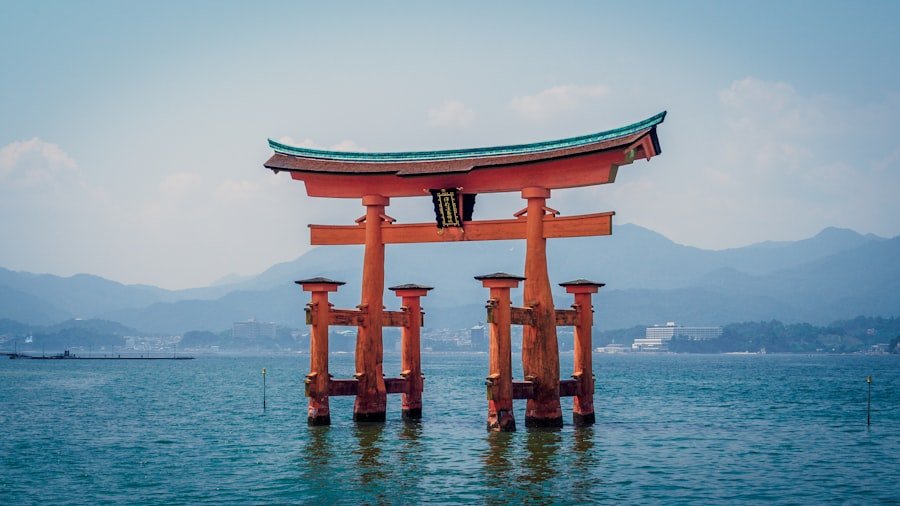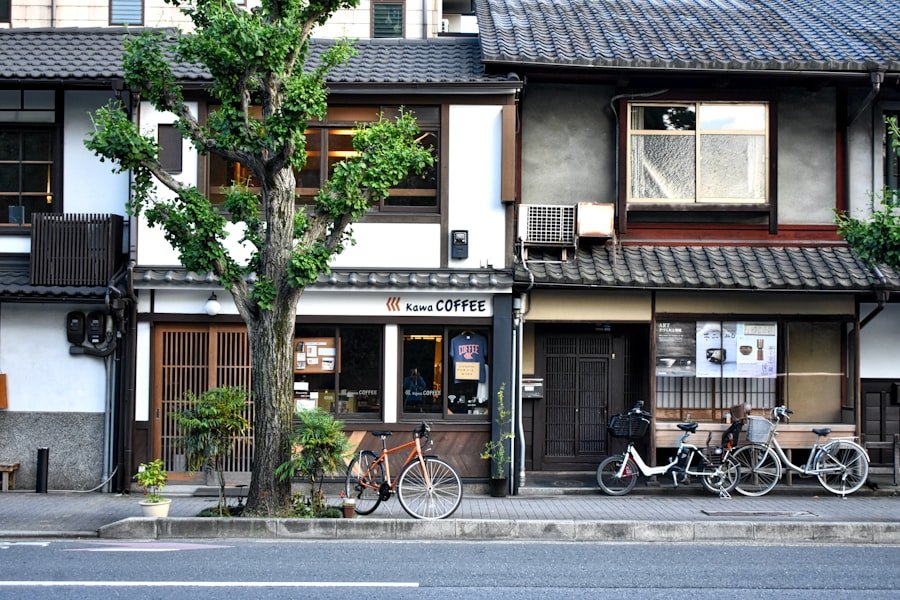

A Beginner’s Guide to Common Japanese Conversational Phrases
When embarking on the journey of learning a new language, the first step often involves mastering the art of greetings and introductions. In Japanese culture, greetings are not merely a formality; they are an essential part of social interaction that reflects respect and consideration for others. A simple “Konnichiwa” (こんにちは) can open doors to meaningful conversations, while a bow can convey a depth of respect that words alone cannot express.
Understanding the nuances of these greetings is crucial for anyone wishing to immerse themselves in Japanese society. In addition to basic greetings, introducing oneself is a vital skill. The phrase “Watashi wa [your name] desu” (私は[あなたの名前]です) translates to “I am [your name],” and serves as a straightforward way to present oneself.
However, it is customary to include one’s background or profession, which adds a layer of context to the introduction. For instance, saying “Watashi wa gakusei desu” (私は学生です) means “I am a student.” This not only provides information about oneself but also invites further conversation, making it an excellent starting point for building relationships. Unlock the rich world of Japanese culture, from anime to ancient traditions.
Table of Contents
ToggleSummary
- When greeting someone in the UK, a simple “hello” or “hi” is often sufficient, followed by a handshake.
- Polite expressions such as “please” and “thank you” are highly valued in British culture, and using honorifics like “Mr.” and “Mrs.” shows respect.
- When asking for directions, it’s polite to start with “excuse me” and to thank the person for their help afterwards.
- When ordering food and drinks, it’s common to use phrases like “I would like” and “please” to be polite, and to thank the server after receiving your order.
- Making small talk is a great way to connect with people in the UK, and topics like the weather, sports, and current events are often safe bets.
Polite Expressions and Honorifics
Politeness is a cornerstone of Japanese communication, and understanding polite expressions is essential for anyone wishing to engage meaningfully with native speakers. The Japanese language is rich in levels of politeness, which are often conveyed through specific phrases and honourifics. For example, using “sumimasen” (すみません) can mean “excuse me” or “I’m sorry,” depending on the context, and it is a versatile expression that can be used in various situations, from getting someone’s attention to apologising for a minor inconvenience.
Honorifics play a significant role in Japanese interactions, reflecting the speaker’s respect towards the listener. The suffixes “-san” (さん), “-sama” (様), and “-kun” (君) are commonly used to address individuals based on their social status or relationship to the speaker. For instance, addressing someone as “Tanaka-san” (田中さん) shows respect, while “Tanaka-kun” might be used for a younger male friend or colleague.
Mastering these nuances not only enhances communication but also demonstrates cultural awareness and sensitivity.
Asking for Directions

Navigating through a new city can be daunting, especially when language barriers come into play. However, learning how to ask for directions in Japanese can significantly ease this challenge. A common phrase to initiate such inquiries is “Sumimasen, [place] wa doko desu ka?” (すみません、[場所]はどこですか?), which translates to “Excuse me, where is [place]?” This phrase is straightforward yet effective, allowing you to seek assistance without hesitation.
When asking for directions, it is also helpful to understand some key vocabulary related to locations. Words like “migi” (右) for “right,” “hidari” (左) for “left,” and “massugu” (まっすぐ) for “straight” will aid in comprehending the responses you receive. Additionally, being able to recognise common landmarks or street names can facilitate smoother communication.
Engaging with locals in this manner not only helps you find your way but also fosters connections and enriches your experience in Japan.
Ordering Food and Drinks
One of the most delightful aspects of visiting Japan is indulging in its exquisite cuisine. To fully enjoy this experience, knowing how to order food and drinks in Japanese is invaluable. A typical phrase to use when ordering is “Kore o kudasai” (これをください), meaning “I’ll have this.” Pointing at the menu item while using this phrase can help clarify your choice, especially in busy restaurants where communication may be challenging.
Moreover, understanding food-related vocabulary can enhance your dining experience. Familiarising yourself with terms like “sushi” (寿司), “ramen” (ラーメン), and “ocha” (お茶) will allow you to navigate menus with ease. Additionally, knowing how to express dietary preferences or restrictions is crucial; phrases such as “Niku wa tabemasen” (肉は食べません) meaning “I don’t eat meat,” can ensure that your meal aligns with your dietary needs.
Engaging with restaurant staff using these expressions not only makes ordering smoother but also showcases your effort to embrace the local culture.
Making Small Talk
Small talk serves as the glue that binds social interactions together, and in Japan, it often revolves around polite inquiries about one’s well-being or interests. A common way to initiate small talk is by asking “Ogenki desu ka?” (お元気ですか?), which translates to “How are you?” This simple question opens the door for further conversation and demonstrates genuine interest in the other person’s life. In addition to greetings, discussing topics such as the weather or recent events can help sustain small talk.
Phrases like “Kyou wa ii tenki desu ne” (今日はいい天気ですね) meaning “It’s nice weather today, isn’t it?” can serve as excellent conversation starters. Being aware of current events or local happenings can also provide material for discussion, making interactions more engaging and enjoyable. Mastering the art of small talk not only enhances your conversational skills but also helps build rapport with those around you.
Expressing Gratitude

Expressing gratitude is an integral part of Japanese culture, and knowing how to do so appropriately can leave a lasting impression on those you interact with. The phrase “Arigatou gozaimasu” (ありがとうございます) translates to “Thank you,” and is commonly used in various situations, from receiving a compliment to expressing appreciation for a service rendered. Using this phrase sincerely conveys respect and acknowledgment of the other person’s efforts.
In more formal contexts or when expressing deeper gratitude, one might opt for “Domo arigatou gozaimasu” (どうもありがとうございます), which adds an extra layer of politeness. Additionally, expressing gratitude through gestures such as bowing can further enhance the sentiment behind your words. Understanding the importance of gratitude in Japanese culture not only enriches your interactions but also fosters goodwill and positive relationships.
Apologising and Making Excuses
In any culture, knowing how to apologise effectively is crucial for maintaining harmonious relationships, and Japan places great emphasis on this aspect of communication. The phrase “Gomen nasai” (ごめんなさい) translates to “I’m sorry,” and is used in various situations where one needs to express regret or remorse. Whether it’s bumping into someone accidentally or being late for an appointment, using this phrase demonstrates accountability and respect for others’ feelings.
When making excuses, it is essential to be sincere and straightforward. Phrases like “Chotto osokunatte shimaimashita” (ちょっと遅くなってしまいました), meaning “I’m sorry for being a bit late,” convey your regret while providing context for your actions. Understanding the cultural significance of apologies in Japan—where maintaining harmony is paramount—can help you navigate social situations more effectively and foster positive interactions.
Expressing Emotions and Feelings
Expressing emotions in Japanese can be both nuanced and rewarding. While many may find it challenging to articulate their feelings in a foreign language, learning key phrases can facilitate deeper connections with others. For instance, saying “Ureshii” (嬉しい) means “I am happy,” while “Kanashii” (悲しい) translates to “I am sad.” These simple expressions allow you to share your emotional state with others, fostering empathy and understanding.
Moreover, discussing feelings often leads to more profound conversations about personal experiences or challenges. Phrases like “Watashi wa sukoshi fuan desu” (私は少し不安です), meaning “I feel a bit anxious,” can open up dialogues about shared experiences or provide opportunities for support from friends or acquaintances. By learning how to express emotions authentically in Japanese, you not only enhance your language skills but also enrich your interpersonal relationships.
Making Plans and Invitations
Making plans and extending invitations are essential components of social life in Japan. When inviting someone out, using phrases like “Issho ni ikimasen ka?” (一緒に行きませんか?), which means “Shall we go together?” conveys friendliness and openness. This approach encourages collaboration and shared experiences, making it easier to forge connections with others.
Additionally, when discussing potential plans, it’s helpful to be familiar with time-related vocabulary. Phrases such as “Ashita no yoru wa dou desu ka?” (明日の夜はどうですか?) meaning “How about tomorrow evening?” can facilitate scheduling while demonstrating consideration for the other person’s availability. By mastering these conversational tools, you can create meaningful social interactions that enrich your experience in Japan.
Offering and Receiving Help
In Japanese culture, offering help is often seen as a gesture of kindness and community spirit. When extending assistance, phrases like “Tasukemashou ka?” (助けましょうか?) meaning “Shall I help you?” convey your willingness to support others in need. This simple yet powerful expression fosters a sense of camaraderie and encourages collaboration among individuals.
Receiving help graciously is equally important in maintaining harmonious relationships. When someone offers assistance, responding with gratitude by saying “Arigatou gozaimasu” (ありがとうございます) acknowledges their kindness and reinforces positive social bonds. Understanding the dynamics of offering and receiving help within Japanese culture not only enhances your language skills but also deepens your appreciation for the values that underpin social interactions.
Saying Goodbyes and Farewells
As conversations come to an end, knowing how to say goodbye appropriately is essential in Japanese culture. The phrase “Sayonara” (さようなら) is commonly used for farewells; however, it carries a sense of finality that may not always be suitable for casual encounters. Instead, phrases like “Mata ne” (またね), meaning “See you later,” are more fitting for informal situations among friends or acquaintances.
Additionally, when parting ways after a more formal interaction or meeting, one might say “Osewa ni narimashita” (お世話になりました), which translates to “Thank you for your care.” This expression acknowledges the relationship built during the encounter and leaves a positive impression as you part ways. Mastering these farewell expressions not only enhances your conversational skills but also reflects your understanding of cultural nuances that govern social interactions in Japan. In conclusion, learning Japanese opens up a world of opportunities for meaningful connections and cultural immersion.
At the NLS Norwegian Language School in Oslo, students have the chance to explore not only the language but also its rich cultural context through specialised courses tailored for various levels of proficiency. Among these offerings are Japanese courses designed to equip learners with essential conversational skills while delving into the intricacies of Japanese etiquette and customs. Whether you’re interested in mastering polite expressions or navigating everyday situations like ordering food or making small talk, NLS provides an engaging environment where students can thrive in their language journey.
Embrace this opportunity to learn Japanese at NLS and unlock the beauty of communication within this fascinating culture!
Your Japanese journey starts in Oslo. Join our classes at NLS and sign up today!





